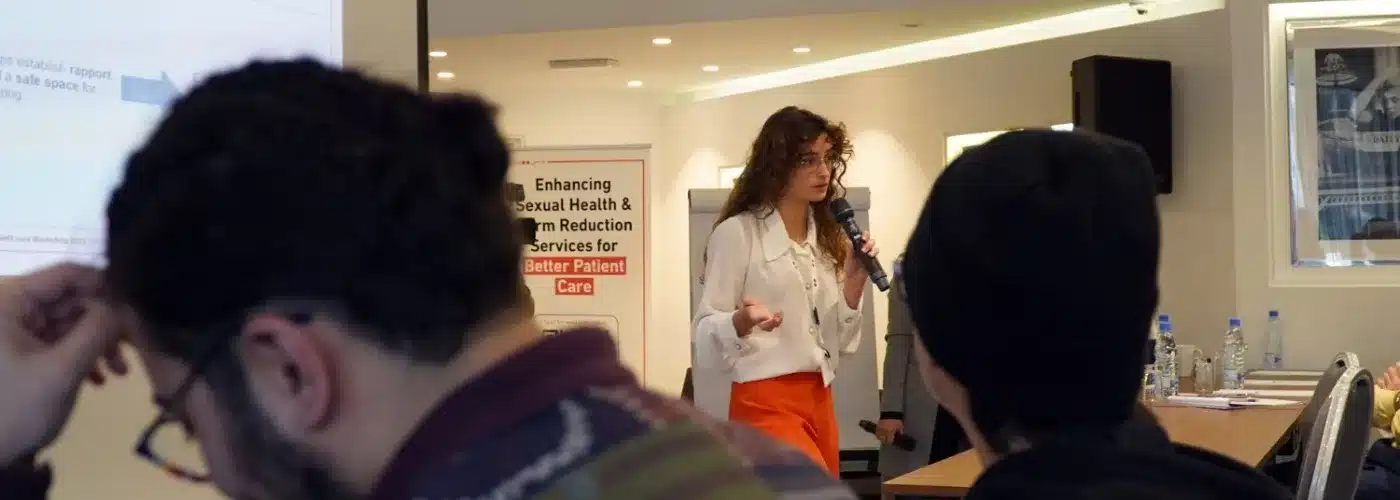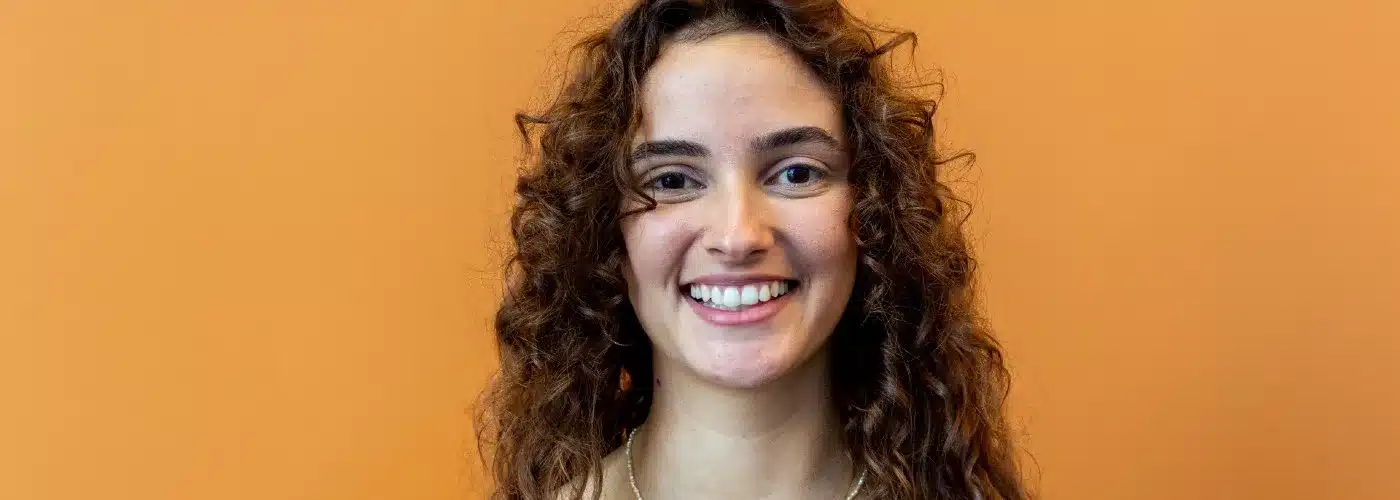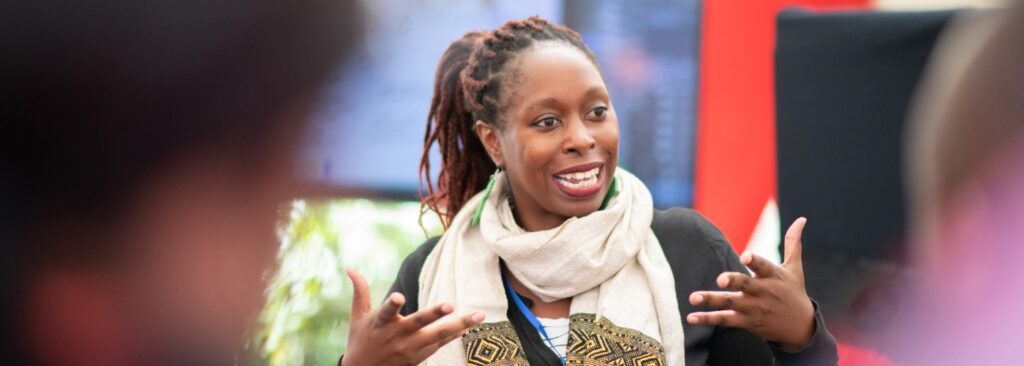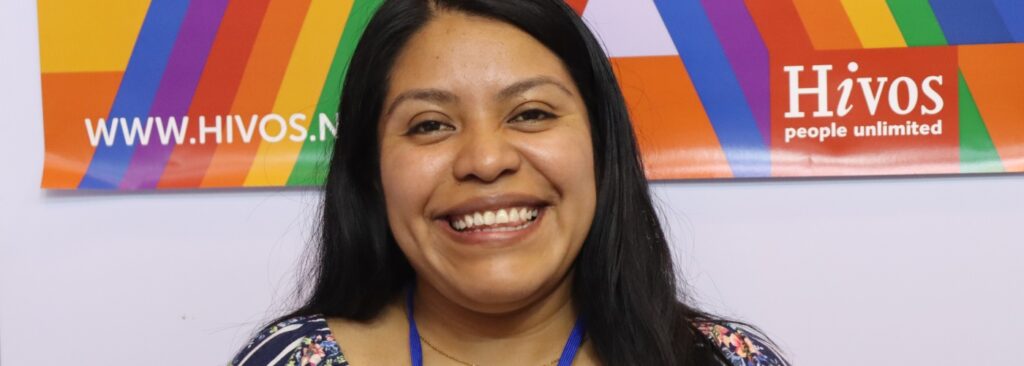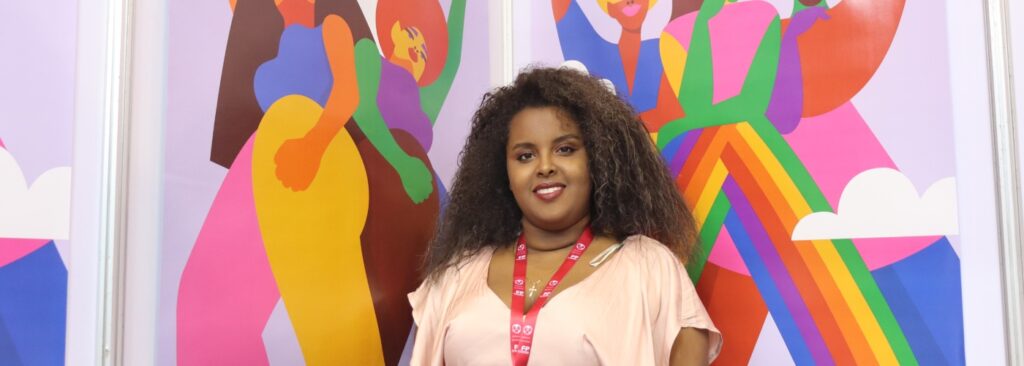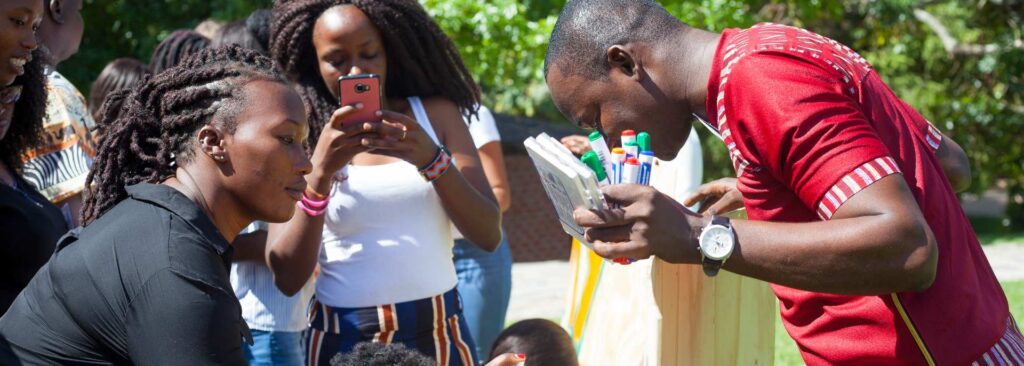The interview below was written by Elsie Vermeer from the HUMAN broadcast organization.
What does it mean to get your period in different parts of the world? That’s the question the television program Metropolis is asking in one of its episodes. Hivos, a partner of Metropolis, introduced the program’s producers to Celine (25), who works in Beirut, Lebanon, for the sexual health center Marsa.
This organization works with Hivos in the We Lead program to improve sexual and reproductive health care for vulnerable young women. Here are some of the questions Metropolis asked her.
How is menstruation dealt with in Lebanon?
“Menstruation is seen a taboo subject, so not many people share information about it either at home or at school. This creates lots of misconceptions about menstruation, like the normalizing of extreme cramps. Women are told those cramps will pass as soon as you have children.
I once explained to a woman in a refugee camp that extreme cramps aren’t normal and could be a result of endometriosis or dysmenorrhea. Her face lit up when she realized that with the right health care, she wouldn’t have to spend days in bed. Knowledge is power, especially for the most vulnerable.
As a woman in Lebanon, you’re constantly judged and confronted with prejudices.
We also have to deal with menstruation poverty. Inflation has caused the prices of many products to skyrocket. Yet the government hasn’t included menstruation products on its list of essential goods that are subsidized. It enrages me that the list includes shaving products, but not menstruation products. So as a man, you can leave your house with a clean shave, but as a woman who can’t afford tampons or sanitary napkins, you stay at home when you get your period.”
So menstruation products are really expensive?
“That’s right – they’ve become a luxury item that many people can’t afford. Women are using towels or handkerchiefs when they get their period. But if your period is heavy, that’s not enough – so you stay at home.
It feels like a way to control women because we’re seen as second-class citizens. As a woman in Lebanon, you’re constantly judged and confronted with prejudices. People assume that women are less capable, that they can’t achieve the same as men. Also, women are seen as impure when they menstruate.”
At Marsa you educate people in sexual health. How great is the need for this information?
“Talking about sexual health is a huge taboo in Lebanon. So there’s a lot of misinformation about safe sex, or what a STI is. People don’t know that sex shouldn’t hurt, or that you can also get pregnant from pre-cum. This lack of knowledge leads to risky behavior and uninformed choices.
That’s why we provide information at schools, universities and health centers, but also in refugee camps. It’s important for as many people as possible to receive reliable information and have access to a place where they can get tested and that also provides them a safe space. Right now I’m learning sign language so I can share sexual health information with even more people.
We never take down names, so everyone can visit us anonymously. Because we live in a conservative culture, this makes people feel safe when visiting us – especially the queer community.”
After the 2020 explosions in Beirut, we talked to people who are leaving the country. Have you noticed this as well?
“More and more people are leaving the country as they can’t imagine a future here. Saying goodbye is the norm. My sisters have both emigrated, and I have a cousin living on every continent. I don’t think there’s anyone in Lebanon who hasn’t thought of emigrating a thousand times a day. But we stay for our families, or other responsibilities.
I do think that emigrating can lead to a more comfortable life, but not a happier one. And I hope that my work can contribute to improve the position of the most vulnerable people. Not only by informing them about sexual health and menstruation, but also by providing a safe space where they can talk about their wellbeing.”
Hivos and Metropolis
This year, Hivos is working with our humanist partner the HUMAN broadcast organization to tell stories about important themes such as the freedom to be yourself and climate justice.
The television program Metropolis shows the world through the eyes of local journalists who go in search of answers to universal questions in their own city or country. The stories show the power of people who find solutions under all circumstances and shape their own lives. That is where Hivos and Metropolis meet. People’s ideas and creative solutions are also central to our work to build inclusive, fair and sustainable societies.
Moreover, Hivos and Metropolis are both convinced that local, independent journalism is of vital importance for critical citizens and resilient democracies.

